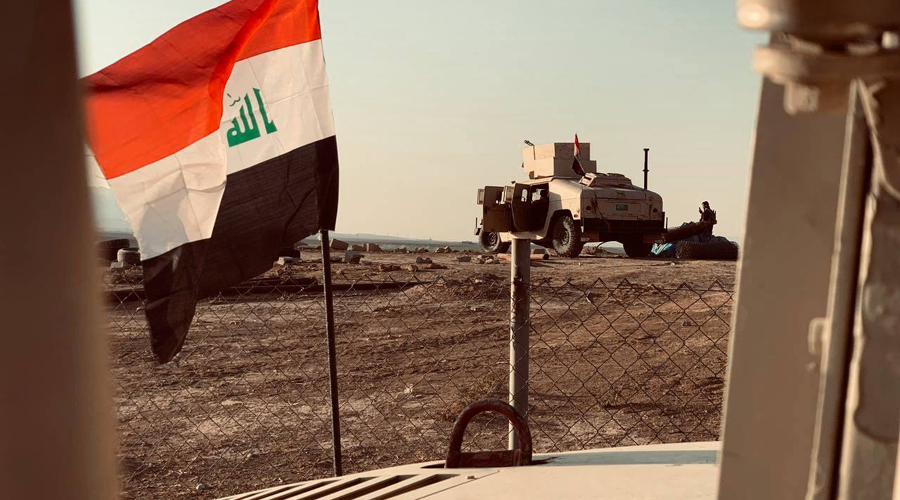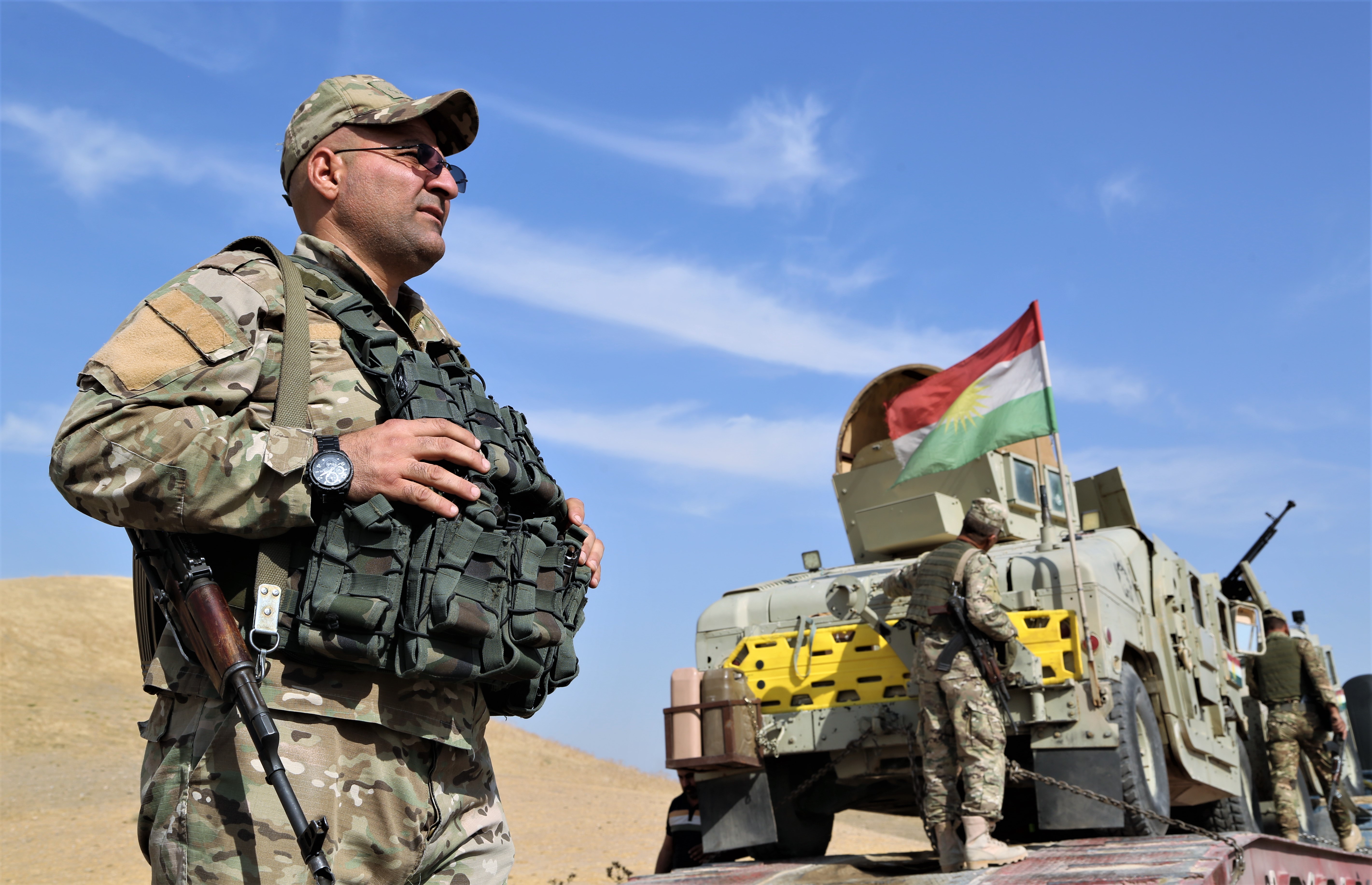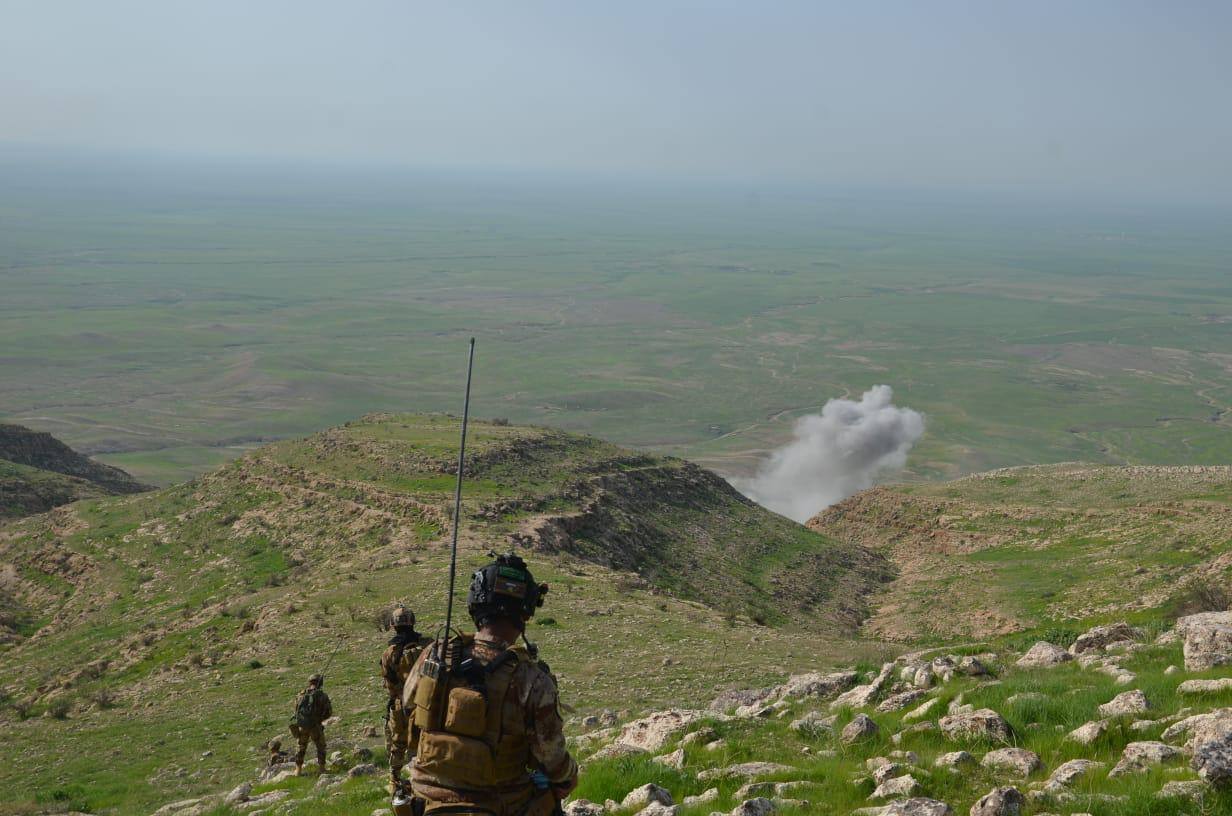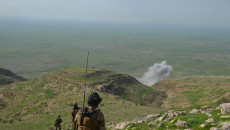The recent confrontations that took place between the Iraqi army and the Kurdish Peshmerga forces in the Mount Qarachugh area in the Makhmour district are due to the strategic value of the region and the proximity of the military points there to the oil wells and the Makhmour refugee camp.
At the end, the Iraqi army troops stationed in those locations after confrontations that resulted in the death of six people on both sides, including the commander of the 18th Infantry Brigade in the Peshmerga forces and his deputy.
Clashes broke out on October 22 in Mount Qarachugh, near the Makhmour refugee camp, after a Peshmerga force demanded the evacuation of military points where the Iraqi army was stationed.
Until a week before the outbreak of confrontations, a force affiliated with the Kurdistan Workers' Party PKK was stationed at those points before handing them over to the Iraqi army.
The PKK-affiliated militants settled in the region at the start of the war against the Islamic State in Iraq and the Levant (ISIS) back in 2014 with the aim of protecting the Makhmour refugee camp.
The camp, located in the Makhmur district of Nineveh province, 60 km southwest of Erbil, is home to at least 12,000 Kurds from Turkey who fled their home towns in the past century due to military operations by the Turkish army. The camp is officially registered and supervised by the Iraqi government and the United Nations UN.
Saeed Mamouzini, media official for the Mosul branch of the Kurdistan Democratic Party KDP, told KirkukNow, “The PKK handed over four military sites to the army according to an agreement with the Iraqi government, without any agreement with the Peshmerga,” and stressed that these sites are very strategic, so the Peshmerga forces wanted to take control.
These sites are very strategic
"There were clashes over it."
The Qarachugh mountain range is only one kilometer east of Makhmour camp, and 20 kilometers from the oil fields in the Kandinawa district, which includes dozens of wells.
The four military points are less than a kilometer away from the Peshmerga sites, and these sites, in addition to the camp, were bombed from time to time by Turkey.
But according to KirkukNow sources, the PKK preferred to hand over the points to the army instead of the Peshmerga "to preserve the security of the camp."
Forces 80 of the KDP, which has not yet been organized into the formations of the Ministry of Peshmerga, are deployed in the region along with other units affiliated with the Kurdistan Regional Government KRG Ministry of Peshmerga.
“These sites must be managed jointly between the Iraqi army and the Peshmerga,” Mamouzini said.

Lieutenant General Abdul Amir Rashid Yarallah, the Chief of Staff of the Iraqi Army, arrived in Makhmour a day before the outbreak of clashes and, accompanied by a military delegation, inspected the new military points and the forces of the 14th Army Division stationed on the border separating the Peshmerga.
Yarallah at the time assigned army commanders to “coordinate with the Peshmerga in order to maintain security and stability in the region,” according to a statement by the Iraqi Ministry of Defense.
Ghazi Faisal, relations officer at the Qarachugh Organization Center of the Patriotic Union of Kurdistan PUK, told KirkukNow, “What happened was an economic and political conflict more than anything else. The goal was to control the strategic region... The matter was not planned, but rather happened all of a sudden.”
The clashes resulted in the death of six people on both sides, four of whom were among the Peshmerga.
“After the Popular Mobilization Forces issued their threats and brought forces to the area, the Peshmerga forces handed over their positions to the Iraqi army, which is currently stationed there,” according to Faisal, who supervises an armed force, under the name of the Volunteer Forces, near Mount Qarachough.
The spokesman for the Commander-in-Chief of the Iraqi Armed Forces, Yahya Rasoul, announced the formation of a higher committee to investigate the circumstances of the incident and called on both sides to exercise restraint, while the Chief of Staff of the Ministry of Peshmerga indicated in a statement that “the incident was unfortunate,” expressing commitment to continued work with the federal government for stability.
These confrontations came despite the fact that the army and Peshmerga formed joint coordination centers in Baghdad, Erbil, Kirkuk, Diyala and several areas of Nineveh Governorate to exchange military and intelligence information.
According to the federal budget law, two joint brigades of army and Peshmerga forces will be formed to maintain security in the region, but these brigades are not yet on duty.

A military operation by the Peshmerga forces in the Sheikh Bizeni area of the Shawan sub-district, Kirkuk, 2020. KirkukNow.
Rizgar Muhammad, the mayor of Makhmur district, told KirkukNow that “the situation in the region is calm and there are no problems... There are efforts being made at high levels to resolve the problems between the Peshmerga and the army.”
The Iraqi government has not yet revealed the results of the investigation into the Makhmour confrontations, although the committee spent two days in Makhmour.
“The PKK forces have political and military problems with the Kurdistan Democratic Party, so they do not want the latter to be present on the outskirts of Makhmour camp and stationed in those military points, especially after the PKK was targeted several times in the region by Turkish raids,” Faisal said
Before the ISIS war and even after the war, the area was under the control of the Peshmerga forces, but the Iraqi forces regained control over it after the events of October 16, 2017, following a Kurdish referendum for independence.
Saeed Mamouzini explained that “the upcoming negotiations and the committee’s report will determine a compromise solution to the security problems in the region.”






